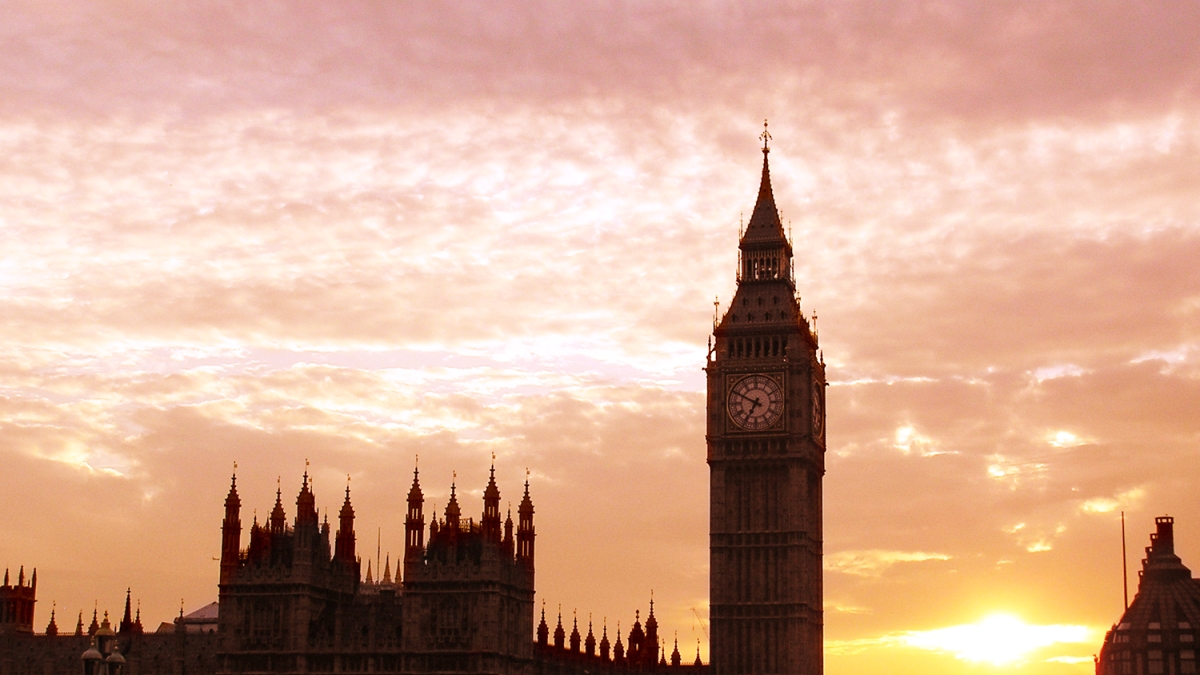On June 23, 52 percent of British citizens voted to leave the European Union, a move dubbed "Brexit." Though many did not believe such a result was possible, the vote will have wide-reaching consequences for the United Kingdom, from financial uncertainty to a possible breakup of the U.K.
Daniel Pout (left), originally from England and now an instructor in the School of Politics and Global Studies in the College of Liberal Arts and Sciences, discussed how this election is unlike any other, and what it could mean for the future of the U.K. and the world.
Question: Is this truly a "populist" victory? Or have we misnamed this kind of effort?
Answer: Voter registration was up and turnout was large, and in those terms it was very much a popular referendum. "Demos," which we translate as "people" and is the root of the word "democracy," was used in ancient Greece to refer particularly to people not in the aristocracy or higher classes. In this sense, the victory was very much a popular victory.
Iain Duncan Smith, former leader of the Conservative Party, claimed to have information suggesting 80 percent of people on council estates (public housing) turned out to vote. The turnout rate is usually less than half of that with that demographic. It was also populist in that voters rejected the advice of the establishment in the form of their own party leaders, groups of experts, artists, international economic organizations, the president of the United States, and even David Beckham.
Referenda are extremely rare in British politics, and the people made good use of this one to deliver a verdict that shocked the established order and brought down the British government.
Q: Are there signs of a "Frexit" in France or elsewhere? What could that mean for the world?
A: I've heard that there is as much anti-EU sentiment in France as in Britain, which could lead to a "Frexit," and some political leadership there is looking for a similar referendum. If Britain and France both leave, Germany will dominate the EU, over which it already has quite a bit of influence. They insist on fiscal responsibility that has never really existed in southern Europe, so the biggest economy and population in the EU, Germany, will start to call more of the shots. Russia is funding many of the far-right parties in Europe, probably to sow discord, and is probably happy with the Brexit result. NATO is very much alive and active on Russia's western border these days, so I'm not surprised they feel threatened.
Q: There are hints of a Scottish independence referendum. What would be the consequences of Scottish independence? Could Scotland support itself within an EU strapped for cash to bail out member states?
A: Scottish independence is a very real possibility. Let's not forget that close to 40 percent of Scottish people voted "leave." That's a sizeable minority. Scotland would not be the smallest or poorest country to be an independent member of the EU, and I would expect to see them make a solid go at it. While it's true that Scotland currently receives a net benefit from being part of the U.K., a lot of their economics depend on what sort of deal they could win on North Sea oil. It's worth noting that Northern Ireland also voted to remain.
Q: That's an interesting point. Sinn Fein, the Northern Irish political party that supports a unified, independent Ireland and has ties to the IRA, has used the opportunity to call for a united Ireland. What could that mean?
A: Sinn Fein absolutely sees this as an opportunity to ask for a vote on their political ideal of a united Ireland. Without a single Irish state on that island, there will be an international boundary that could conceivably be reinforced by tariffs and restrictions in the movement of people. Since the independence of the Republic of Ireland about 100 years ago, there has been an agreement that people may cross between Northern Ireland and the Republic mostly unencumbered. That is why Ireland, like the U.K., is not part of the Schengen AreaThe Schengen Area is the area including 26 European countries that have abolished passport and any other type of border control at their mutual borders. It mostly functions as a single country for international travel purposes, with a common visa policy. . I don't see a reason why this arrangement can't continue post-Brexit.
Q: It was said that even the bookies didn't think Brexit would be a reality. How did we miss it, and is there a particular demographic to point to?
A: In this case, 75 percent of the money was placed on "remain" to win. However, 75 percent of the individual bets placed were on "leave." Though a small number of people placed large bets predicting "remain" would win, the majority of people were backing "leave."
In terms of demographics, the betting market was a reflection of the upper-middle classes, particularly those based in London, who bet the large sums against many more ordinary people having a small flutter.
Q: Are comparisons to the U.S. election and fight over immigration issues overblown?
A: It seems that Donald Trump has targeted a lot of disenfranchised voters in the U.S., which is a striking similarity. In both the U.S. and the recent referendum you saw a backlash against an established order that was doing everything it could to hold the status quo. Polls showed that those voting "remain" did so primarily because they were afraid of the economic ramifications of leaving. They heeded the warnings of the establishment, including a threat by the chancellor, George Osborne, to implement an emergency budget full of austerity measures should there be a "leave" vote. On that basis, the comparisons are fair.
In the Brexit vote, however, immigration was more of a secondary issue than it is in the U.S. Polls show that those voting to leave the EU did so in order to bring decision-making back to Westminster from Brussels.
Q: We talked about Scotland voting by a large margin to remain in the EU (62 percent). Thoughts on Donald Trump's comments to a Scottish audience about how he thinks leaving the EU is a good thing?
A: (Laughs) I think there is very little that Donald Trump could say that would make his welcome in Scotland anything other than very chilly!
More Law, journalism and politics

Exhibit uses rare memorabilia to illustrate evolution of US presidential campaigns
After one of the most contentious elections in history, a new museum exhibit offers a historical perspective on the centuries-old American process.“We The People! Electing the American President” had…

TechTainment conference explores the crossroads of law, technology, entertainment
What protections do writers, actors, producers and others have from AI? Will changing laws around name, image and likeness (NIL) eliminate less lucrative college sports programs?And what does…

How to watch an election
Every election night, adrenaline pumps through newsrooms across the country as journalists take the pulse of democracy. We gathered three veteran reporters — each of them faculty at the Walter…

